Stargate Studios Malta: tell me about how it all began.
The company started as ‘The Bigger Picture’ some 12 years ago, and it was founded by Matthew Pullicino and me as a production company. Over the years we produced high-end television commercials, short films and other audiovisual projects, predominantly for the local market.
In 2012, we set up Stargate Studios Malta by partnering with Sam Nicholson of Stargate Studios, an international visual effects company with more than 10 studios around the world with its main office being in Los Angeles.
Since its inception Stargate Studios has worked on visual effects for a host of popular television series and movies, like The Walking Dead, Grey’s Anatomy, Heroes and NCIS.
The combination of an experienced production company and a seasoned visual effects (VFX) studio has made Stargate Studios Malta a strong contender to acquire international projects.
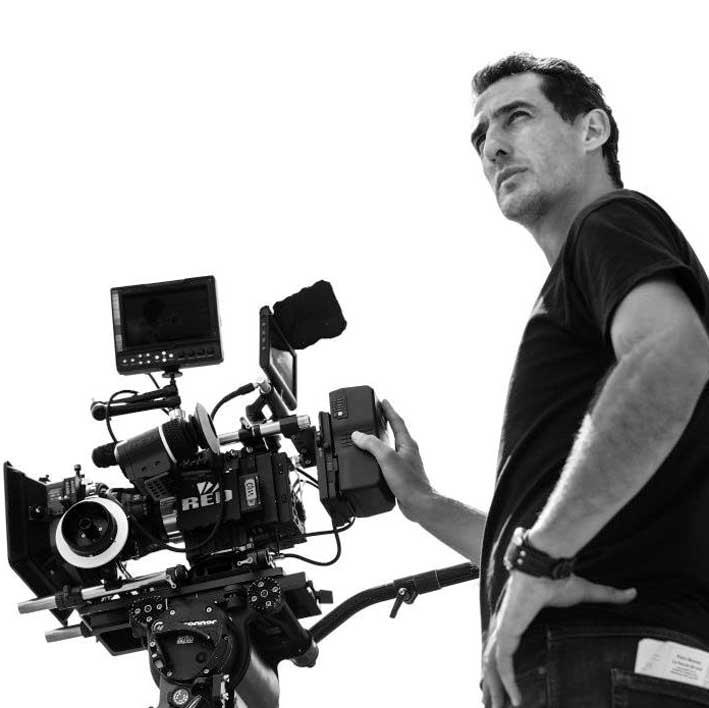
David Serge
So what visual effects projects has Stargate Studios Malta worked on?
Since late 2012 we have worked on around 15 international productions, from El Principe and La Embajada in Spain, Pietro Mennea and I Medici in Italy, to You, Me and the Apocalypse in the UK. We have also been involved in Belgian and Canadian feature films. Our work has been broadcast on Sky, NBC, BBC, Rai, and Mediaset to name a few.
Now that we have just finished working on I Medici we are busy working on another four foreign projects, which are currently in different stages of pre-production, shooting and post-production.
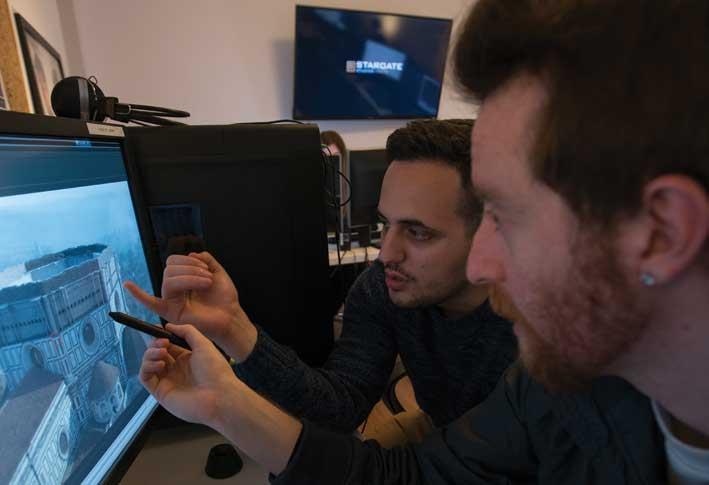
Would you say that I Medici is the biggest show you worked on to date?
Probably yes, it was definitely the most challenging show so far.
The show was produced by Lux Vide, one of Italy’s biggest content producers, and executive produced by Frank Spotnitz, the creator of X-Files. Artistically the stakes were just as high, with Sergio Mimica-Gezzan, Steven Spielberg’s first assistant director for 12 years, having been called in to direct the project.
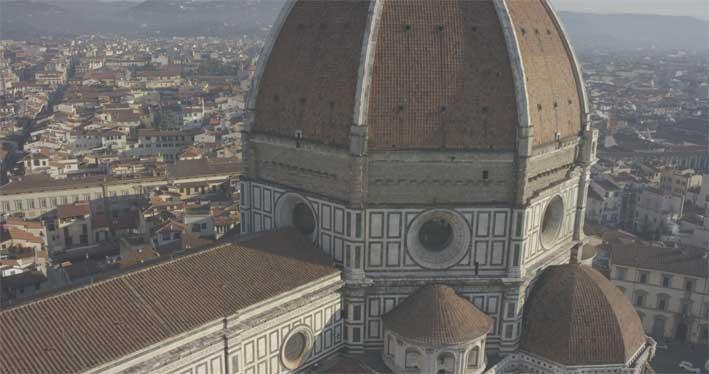
The Florence Cathedral cupola before visual effects shot
How challenging was it to work on I Medici?
I Medici required some big visual effects shots! Recreating 15th century Florence, Rome and Venice was perhaps one of the most challenging tasks for us. A period project of this scale always needs to feel authentic. The show was shot and broadcast in Ultra HD (4K), for which we had to create full 3D photo-realistic environments and shots.
For I Medici, we had to deliver a total of 450 shots for eight episodes, which is quite an achievement considering their complexity. The work involved ranged from cleanups of modern elements in the various locations to full 3D shots of the construction of the Santa Maria del Fiore Basilica cupola.
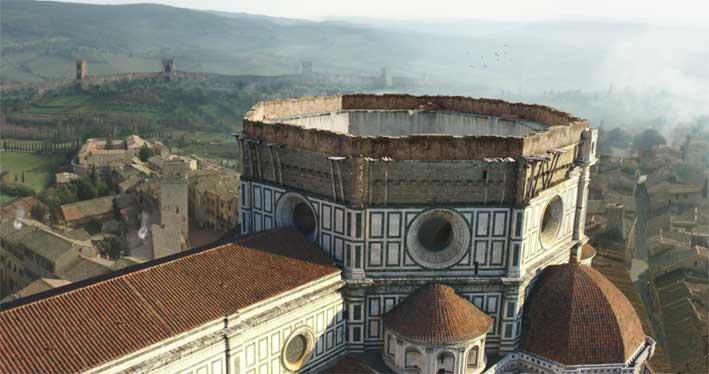
The Florence Cathedral cupola after visual effects shot
How long did it take Stargate Studios Malta to complete its work on I Medici?
We started I Medici back in summer 2015. For five months I was on set in Italy, supervising all the visual effects shots, moving from one beautiful location to another with the rest of the crew. Following that, in February 2016 we started the post production work on the project, wrapping up all the visual effects work last September - a full eight months later.
I was back in Florence last week for the World Premiere of the show, a few days before it started being broadcast on Rai. The first two episodes viewership averaged out at around 7.5 million viewers, making it a storming success.
How important are visual effects for such projects?
They are vital. The thing is this, we do visual effects because storytellers sometimes dream of stuff that is either impossible to shoot or is too costly. A story like I Medici could not have been told without the help of visual effects.
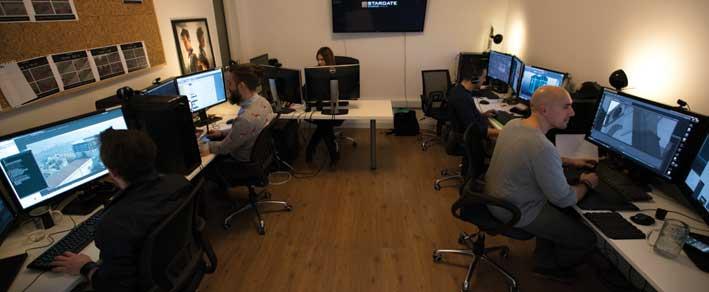
Why would an international production choose to work with a visual effects company based in Malta?
Malta’s presence within the Stargate network is key to attracting European productions. As Maltese we have an understanding of the cultures that surround us and know how to interface with the different markets we are called to operate in.
We can give the Italians, the British and the Spanish clients a comfort level when speaking the same language and can also communicate concepts using similar cultural references. The post production financial incentives offered by the Malta Film Commission also help in making a Malta-based company an attractive solution to international filmmakers.
From what I see, you pride yourself with working with local talent…
Definitely! It is very difficult to find Maltese people who are trained in this industry. That is why we have to nurture them.
When we started our visual effects projects, we had a team of which around 70% were foreign. Over time we started identifying local artists who were willing to learn the craft and we got them on board.
Today we have a team of 25 full-timers, 90% of which are local. Having said that, we are blessed to have had some amazing and talented international visual effects artists working for us here in Malta over the years.
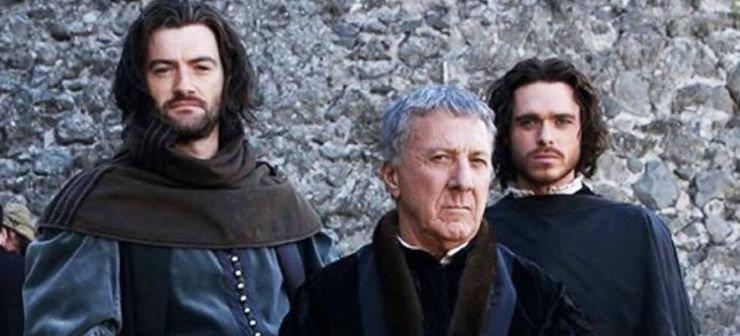
Why is it such a problem to find Maltese workers for this industry?
Unfortunately the nature of our work in visual effects is very specific, and the level is pretty high. For various reasons courses offered at the University of Malta and MCAST tend to be more generic.
As such, it is very difficult for students to be in a position to hit the ground running in the visual effects industry after they have graduated.
What are your plans for the future?
As a visual affects company we continue to grow and develop to meet our clients’ requirements. Our immediate plan is to move into a bigger space and we are working on moving into a 1,000 square meter studio-facility in the coming months.
Our production department also keeps on growing and producing high-end work for our local clients. As content producers we have plans to develop and produce feature films aimed at distribution in the international market, contributing to the continual growth of Malta’s indigenous film industry.